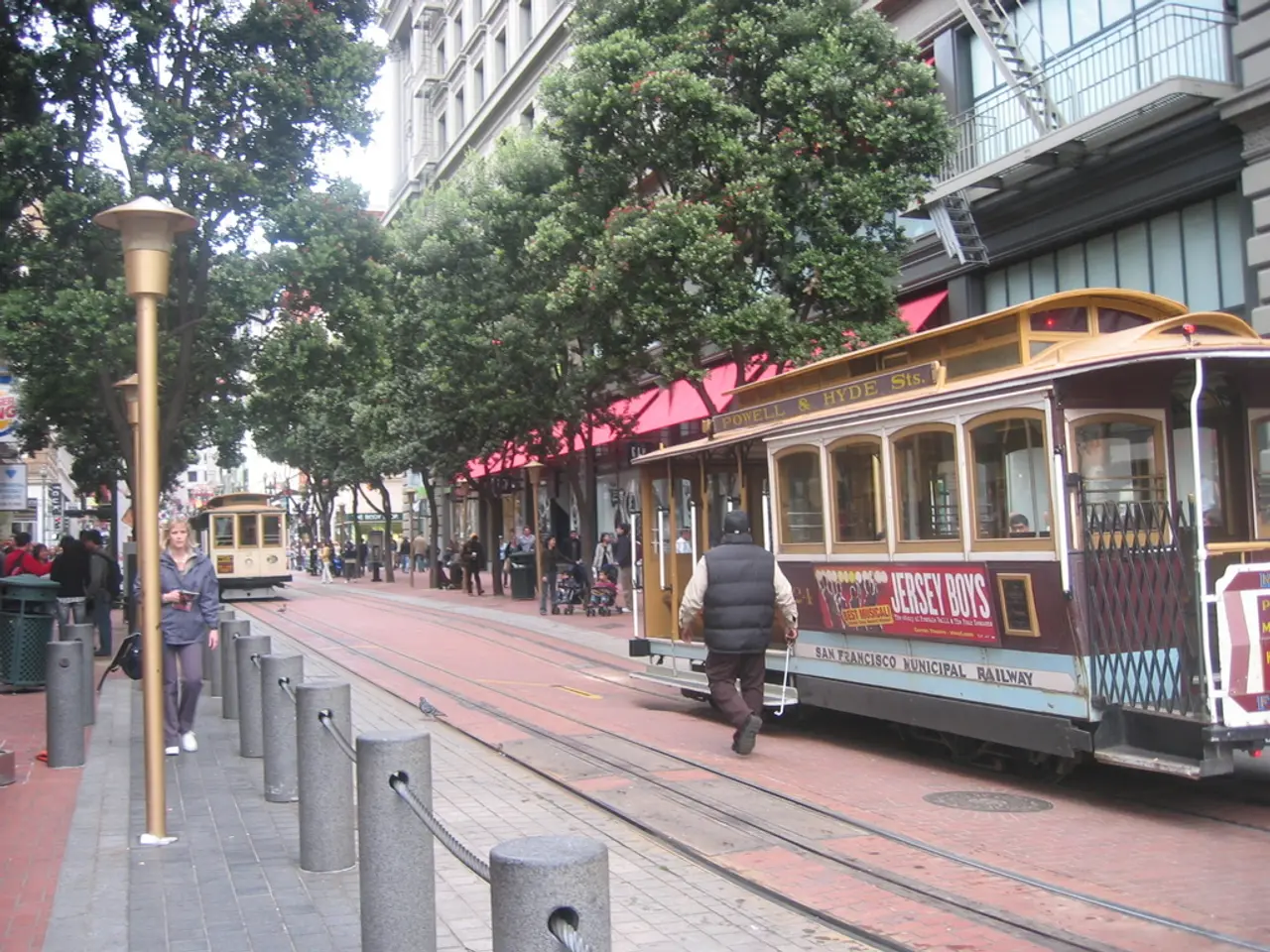Rail Fanatics Spotted at Kalka Railway Station Entrance
**Kalka Railway Station: A Historic Gateway to the Kalka-Shimla Mountain Railway**
Nestled in the heart of India, **Kalka Railway Station** stands as a testament to the country's rich history and engineering prowess. Established in the late 1800s, the station serves as the starting point of the famous Kalka-Shimla Railway, a narrow-gauge mountain railway built during the British colonial era.
- **Early Days and Evolution:**
In its early days, Kalka was a small railway station with no platform and no shed, receiving only one train each day. The journey from Calcutta (now Kolkata) to Kalka was made by road instead of rail. Upon arrival, passengers were greeted by camel drivers, tonga-wallahs, and mahawats, who immediately assisted with loading their belongings onto transport without negotiation due to fixed rates.
As the railway line to Kalka from Ambala was opened in 1891, the Kalka Shimla Railway project commenced a few years later, culminating in the line's completion and inauguration in 1903. The railway, which rises about 1500 meters over a distance of approximately 96 kilometers, includes 103 tunnels and numerous bridges, representing a remarkable engineering achievement of its time.
- **Historical Significance:**
Initially serving colonial administrative purposes, the railway quickly became a lifeline for hill residents and later a heritage tourist attraction. The tunnel known as Tunnel No. 33 has gained fame, partly due to the tragic story of Colonel Barog, a railway engineer associated with the line, adding a human dimension and folklore element to the railway's history.
- **Modern Era and Heritage Status:**
Today, the Kalka Railway Station continues to function as the gateway to the hill railway, which was recognized as a UNESCO World Heritage Site along with other mountain railways of India. Despite being over 120 years old, the railway line and Kalka station have adapted to modern needs, such as attempts to introduce upgraded coaches like Vistadome cars to enhance tourism experiences. However, these upgrades have faced operational challenges.
The station, located in a growing town in India, features common amenities like tea stalls, parked railway bogies, water taps, coolies smoking bidis, and locomotives shunting between yards and the station. Outside the station, there are fewer trees of neem, sheesham, and peepal; they have been replaced by buildings. The porters at the station are almost jobless due to the suitcases with tiny wheels under them, which passengers refuse to let them help with.
In contrast to the past, where the journey uphill was dusty and bumpy, passengers now travel in comfort, with the road becoming steeper and narrower as they advance towards the hills. Instead of ekkawallas and bullock carts, there is a taxi stand now, although passengers do not trust the taxi drivers and consider their rates to be very high, with no one having the courage to negotiate with them.
The Kalka-Shimla Railway, with its rich history, engineering feats, and cultural significance, continues to captivate visitors and serve as a symbol of India's colonial past and engineering prowess.
[1] "Kalka-Shimla Railway." UNESCO World Heritage Centre. Accessed April 24, 2023. https://whc.unesco.org/en/list/1352 [2] "Kalka-Shimla Railway." Indian Railways. Accessed April 24, 2023. https://www.indianrailways.gov.in/railwayboard/homepage.jsp?id=1&ln=1 [3] "Vistadome Coach in Kalka-Shimla Railway." My India. Accessed April 24, 2023. https://www.myindiamaps.com/india/kalka-shimla-railway-vistadome-coach/ [4] "Kalka-Shimla Railway: The Hill of Dreams." The Hindu. Accessed April 24, 2023. https://www.thehindu.com/sci-tech/energy-and-environment/kalka-shimla-railway-the-hill-of-dreams/article24894086.ece
In the bustling town near the station, local transportation hints at modernization with the presence of taxi stands and only a few remaining trees, replaced by buildings. (transportation, lifestyle)
Traveling to Kalka Railway Station today offers a comfortable journey compared to the past, with taxis replacing ekkawallas and bullock carts, yet some passengers still question the high fares, reluctant to negotiate. (travel, finance)





